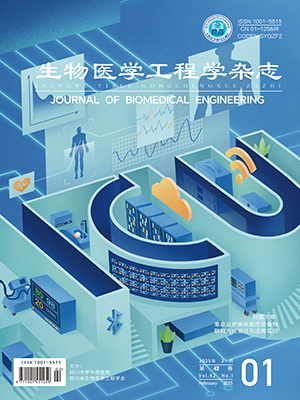| 1. |
Walsh V, Cowey A. Transcranial magnetic stimulation and cognitive neuroscience. Nat Rev Neurosci, 2000, 1(1): 73-79.
|
| 2. |
Simonetta-Moreau M. Non-invasive brain stimulation (NIBS) and motor recovery after stroke. Ann Phys Rehabil Med, 2014, 57(8): 530-542.
|
| 3. |
Klomjai W, Katz R, Lackmy-Vallée A. Basic principles of transcranial magnetic stimulation (TMS) and repetitive TMS (rTMS) Ann Phys Rehabil Med, 2015, 58(4): 208-213.
|
| 4. |
Rossi S, Hallett M, Rossini P M, et al. Safety, ethical considerations, and application guidelines for the use of transcranial magnetic stimulation in clinical practice and research. Clin Neurophysiol, 2009, 120(12): 2008-2039.
|
| 5. |
Ahmed M A, Darwish E S, Khedr E M, et al. Effects of low versus high frequencies of repetitive transcranial magnetic stimulation on cognitive function and cortical excitability in Alzheimer's dementia. J Neurol, 2012, 259(1): 83-92.
|
| 6. |
Arendash G W, Mori T, Dorsey M, et al. Electromagnetic treatment to old Alzheimer's mice reverses β-amyloid deposition, modifies cerebral blood flow, and provides selected cognitive benefit. PLoS One, 2012, 7(4): e35751.
|
| 7. |
Garcia-Toro M, Salva J, Daumal J, et al. High (20-Hz) and low (1-Hz) frequency transcranial magnetic stimulation as adjuvant treatment in medication-resistant depression. Psychiatry Res, 2006, 146(1): 53-57.
|
| 8. |
George M S, Nahas Z, Molloy M, et al. A controlled trial of daily left prefrontal cortex TMS for treating depression. Biol Psychiatry, 2000, 48(10): 962-970.
|
| 9. |
Lee S H, Kim W, Chung Y C, et al. A double blind study showing that two weeks of daily repetitive TMS over the left or right temporoparietal cortex reduces symptoms in patients with schizophrenia who are having treatment-refractory auditory hallucinations. Neurosci Lett, 2005, 376(3): 177-181.
|
| 10. |
Wölwer W, Lowe A, Brinkmeyer J, et al. Repetitive transcranial magnetic stimulation (rTMS) improves facial affect recognition in schizophrenia. Brain Stimul, 2014, 7(4): 559-563.
|
| 11. |
Mally J, Stone T W. Therapeutic and “dose‐dependent” effect of repetitive microelectroshock induced by transcranial magnetic stimulation in Parkinson's disease. J Neurosci Res, 1999, 57(6): 935-940.
|
| 12. |
Cantarero G, Lloyd A, Celnik P. Reversal of long-term potentiation-like plasticity processes after motor learning disrupts skill retention. J Neurosci, 2013, 33(31): 12862-12869.
|
| 13. |
Cantarero G, Tang B, O'malley R, et al. Motor learning interference is proportional to occlusion of LTP-like plasticity. J Neurosci, 2013, 33(11): 4634-4641.
|
| 14. |
Ogiue-Ikeda M, Kawato S, Ueno S. The effect of repetitive transcranial magnetic stimulation on long-term potentiation in rat hippocampus depends on stimulus intensity. Brain Res, 2003, 993(1/2): 222-226.
|
| 15. |
Lenz M, Platschek S, Priesemann V, et al. Repetitive magnetic stimulation induces plasticity of excitatory postsynapses on proximal dendrites of cultured mouse CA1 pyramidal neurons. Brain Struct Funct, 2015, 220(6): 3323-3337.
|
| 16. |
Yang Huiyun, Liu Yang, Xie Jiacun, et al. Effects of repetitive transcranial magnetic stimulation on synaptic plasticity and apoptosis in vascular dementia rats. Behav Brain Res, 2015, 281: 149-155.
|
| 17. |
Wang Hualong, Xian Xiaohui, Wang Yanyong, et al. Chronic high-frequency repetitive transcranial magnetic stimulation improves age-related cognitive impairment in parallel with alterations in neuronal excitability and the voltage-dependent Ca2+ current in female mice. Neurobiol Learn Mem, 2015, 118: 1-7.
|
| 18. |
Shang Yingchun, Wang Xin, Shang Xueliang, et al. Repetitive transcranial magnetic stimulation effectively facilitates spatial cognition and synaptic plasticity associated with increasing the levels of BDNF and synaptic proteins in Wistar rats. Neurobiol Learn Mem, 2016, 134(Pt B): 369-378.
|
| 19. |
Sun Peng, Wang Furong, Wang Li, et al. Increase in cortical pyramidal cell excitability accompanies depression-like behavior in mice: a transcranial magnetic stimulation study. J Neurosci, 2011, 31(45): 16464-16472.
|
| 20. |
Hölscher C. Synaptic plasticity and learning and memory: LTP and beyond. J Neurosci Res, 1999, 58(1): 62-75.
|
| 21. |
Xavier G F, Costa V C. Dentate gyrus and spatial behaviour. Prog Neuro-Psychoph, 2009, 33(5): 762-773.
|
| 22. |
Tarragon E, Lopez D, Estrada C, et al. Memantine prevents reference and working memory impairment caused by sleep deprivation in both young and aged Octodon degus. Neuropharmacology, 2014, 85: 206-214.
|
| 23. |
Bevins R A, Besheer J. Object recognition in rats and mice: a one-trial non-matching-to-sample learning task to study 'recognition memory'. Nat Protoc, 2006, 1(3): 1306-1311.
|
| 24. |
Gomes-Osman J, Indahlastari A, Fried P J, et al. Non-invasive brain stimulation: probing intracortical circuits and improving cognition in the aging brain. Front Aging Neurosci, 2018, 10: 177.
|
| 25. |
Estrada C, Fernández-Gómez F J, López D, et al. Transcranial magnetic stimulation and aging: Effects on spatial learning and memory after sleep deprivation in Octodon degus. Neurobiol Learn Mem, 2015, 125: 274-281.
|
| 26. |
Barker G R, Warburton E C. When is the hippocampus involved in recognition memory. J Neurosci, 2011, 31(29): 10721-10731.
|
| 27. |
Zhang Xiaochen, Yang Chunxiao, Gao Jing, et al. Voluntary running-enhanced synaptic plasticity, learning and memory are mediated by Notch1 signal pathway in C57BL mice. Brain Struct Funct, 2018, 223(2): 749-767.
|
| 28. |
Kameyama T, Nabeshima T, Kozawa T. Step-down-type passive avoidance- and escape-learning method. J Pharmacol Methods, 1986, 16(1): 39-52.
|
| 29. |
Nasehi M, Piri M, Nouri M, et al. Involvement of dopamine D1/D2 receptors on harmane-induced amnesia in the step-down passive avoidance test. Eur J Pharmacol, 2010, 634(1/3): 77-83.
|
| 30. |
Wang Hualong, Geng Yuan, Han Bing, et al. Repetitive transcranial magnetic stimulation applications normalized prefrontal dysfunctions and cognitive-related metabolic profiling in aged mice. PLoS One, 2013, 8(11): e81482.
|
| 31. |
Tang A D, Hong I, Boddington L J, et al. Low-intensity repetitive magnetic stimulation lowers action potential threshold and increases spike firing in layer 5 pyramidal neurons in vitro. Neuroscience, 2016, 335: 64-71.
|




